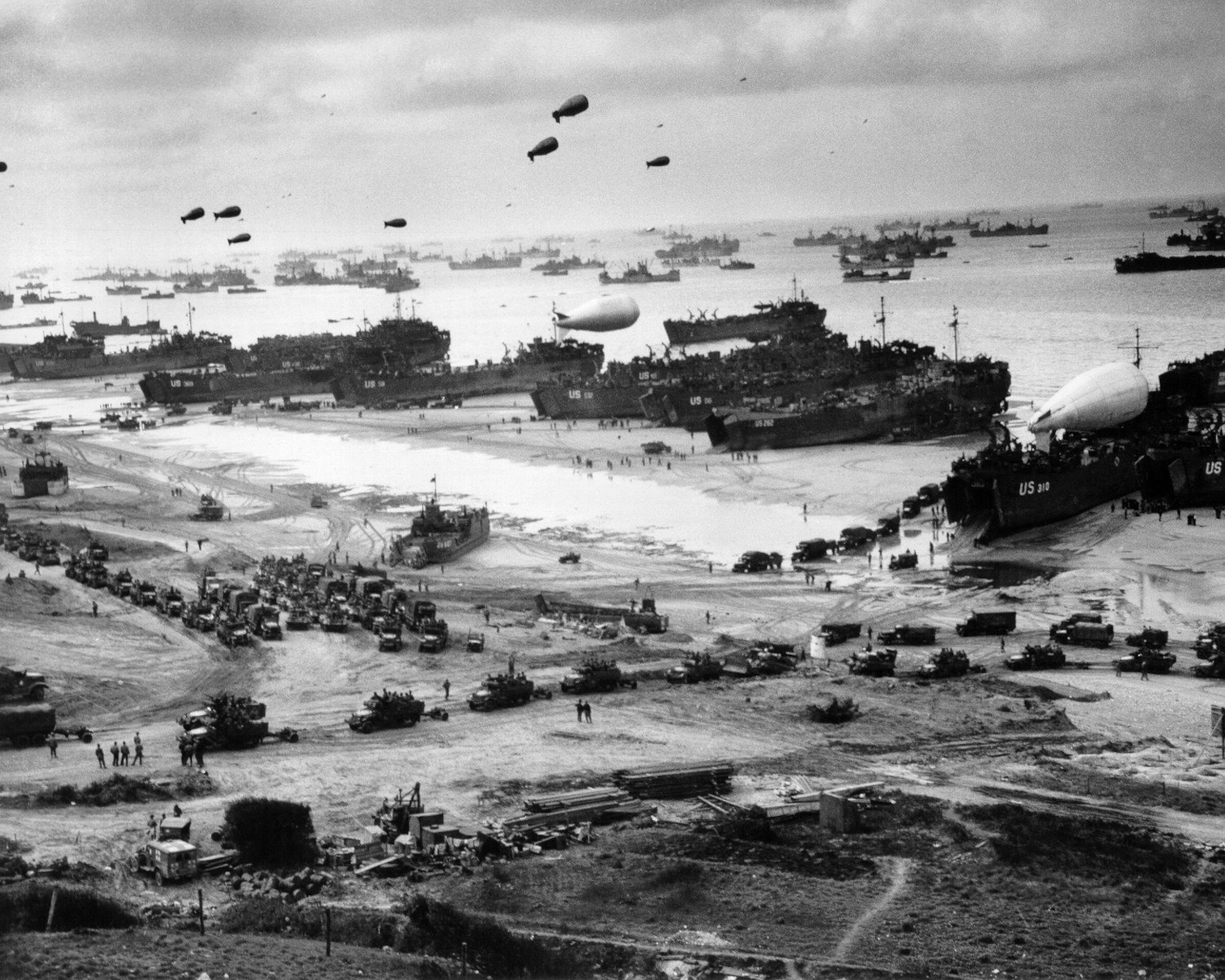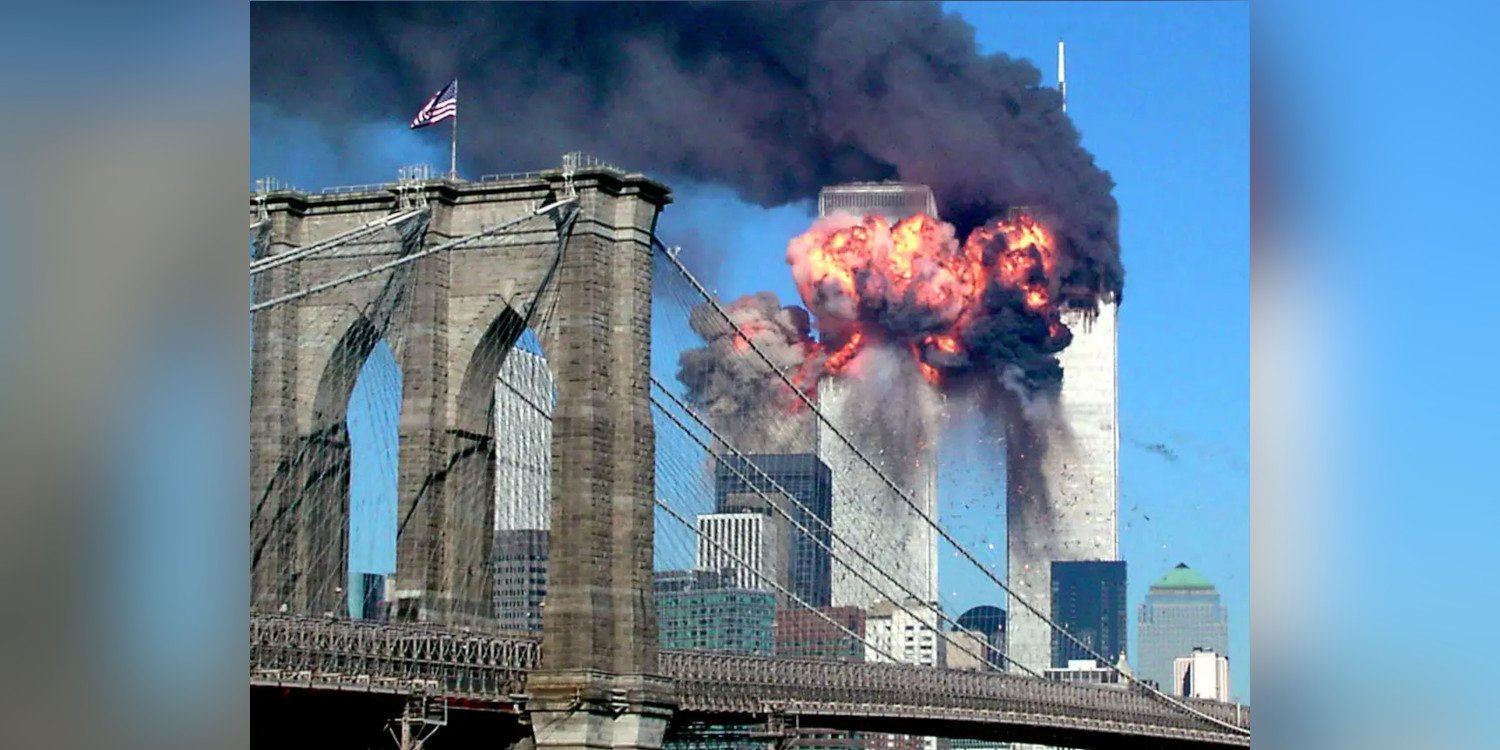Veterans Day: War and Remembrance for Freedom Was Not Free
Omaha Beach during the Invasion of Normandy
Veterans Day and Remembrance Sunday first honored the great sacrifices of the First and Second World Wars, and freedom from a global tyranny too easily forgotten.
“What we obtain too cheap, we esteem too lightly.”
— Thomas Paine, 1776
What we today honor as Veterans Day (November 11) in the United States, and Remembrance Sunday (the Sunday nearest November 11) in the United Kingdom, began in Europe as Armistice Day. This history is worthy of a reminder, for we forget the fine points of history to our own peril. The armistice that ended hostilities in World War I, culminating in the 1919 Treaty of Versailles, was signed on November 11, 1918. In 1954, Armistice Day was expanded to become Veterans Day in the United States and Remembrance Sunday in England to honor all who served in the two World Wars. Today this memorial is expanded to honor the veterans of all wars.
The quote from Thomas Paine above was a criticism of American colonists who became comfortable in their isolation and failed to heed the growing oppressions that would eventually end up at their doors in the War for Independence. At a time when the American footprint is fading from the paths to tyranny throughout the world, it’s perilous to forget the high price that was paid to win and preserve our freedoms. The freedom from tyranny that we sometimes take for granted in America was won at the price of our brothers’ blood which today cries out to us from the Earth. We are free thanks to them. War is futile without remembrance.
World War I engulfed all of Western Europe, pitting the Central Powers of Germany and the Austria-Hungarian Empire against the Allies: Great Britain and its Dominions, France, Russia, and then later Italy and the United States. All was not quiet on the Western Front of that war which extended all the way from the Vosges Mountains in Eastern France to Ostend, Belgium.
America entered World War I in 1917 in response to Germany’s use of submarines to destroy commercial vessels crossing the Atlantic. This tipped the balance of the war which ended a year later. The First World War cost the lives of ten million people by the time an armistice was signed on November 11, 1918. World War II, which began with Germany’s invasion of Poland in 1939 and ended with the surrender of Germany and Japan in 1945, took the lives of fifty-five million people. Freedom was never free.
Dates with Destiny
We citizens of a civilized society remember significant dates for a reason. But the Internet generation is causing us to lose some of our collective cultural memory. Today, we rely too much on a Google search to provide meaning to our existence. There’s something to be said for having at least a basic framework of meaning for dates we observe and why they are of some cultural importance to us. Anniversaries that lend themselves to our social or cultural identity are in danger of being lost for subsequent generations.
Perhaps the most modern example of a date with cultural meaning in Western Civilization is September 11, 2001 a date that today lives in infamy on a global scale. At Beyond These Stone Walls, I marked its twentieth anniversary with “The Despair of Towers Falling, the Courage of Men Rising.” That post was a vivid description of how that day unfolded from a very unusual perspective, that of a prison cell, and of its far reaching impact even here.
But most people in the Western world are not conscious of the whole story behind the significance of that date. Knowing why America became a target of al Qaeda on that date gives the event a whole new meaning, and human beings engage in an innate search for meaning in the events of our lives. That is the very purpose of religion. It seeks and finds meaning in our individual and collective existence. In human history, no culture has survived for long without religion, or a substitute for religion.
And it’s the substitute for religion — for real religious meaning — that we should most fear. Those who set the infamous day of September 11 in motion were themselves marking the anniversary of events they retained in collective consciousness for over 300 years, events that much of the rest of the world had forgotten. What happened in New York and Washington on September 11, 2001 began in Europe more than three centuries earlier during the Siege of Vienna on the night of September 11, 1683.
The story was described by the late Christopher Hitchens in “Why the suicide killers chose September 11” (The Guardian, October 3, 2001). Then it was expanded upon by Father Michael Gaitley in a great book entitled, The Second Greatest Story Ever Told.” In the book, Father Gaitley wrote of the historic significance of September 11:
“For some 300 years, an epic struggle raged between the Ottoman (Muslim) Empire and the Holy Roman (Catholic) Empire. The Battle of Vienna marked the turning point in this struggle as it stopped the Muslim advance into Europe…. On the night of September 11, [1683], the Muslims launched a preemptive attack on Austrian forces…”
— The Second Greatest Story Ever Told, p.45
By the next night, September 12, 1683, after a night of fierce battle, the Islamic forces were repelled and routed by the Polish cavalry led into battle by King Jan Sobieski himself. But victory also brought the knowledge that 30,000 hostages, mostly women and children, were executed before the Islamic retreat on orders from the Moslem commander. The Polish king wrote in a letter of his horror at the savagery of the fleeing invaders. Then, writing his post-victory letter to his nation, King Sobieski paraphrased in Latin Caesar’s famous words of victory: “Veni, Vidi, Deus Vincit” — “I Came, I Saw, God Conquered.”
King Sobieski had entrusted that battle to the intercession of Mary, Mother of God, and it was in honor of this victory that the Pope established the date of September 12 as the Feast of the Holy Name of Mary. What had thus been the date that began an event of glory and great sacrifice for Christendom was a date of infamy for fundamentalist Islam, a date remembered for over 300 years. It was for this reason that September 11 was chosen for an attack on the West by al Qaeda terrorists in 2001.
From the cover of A Pope and a President by Paul Kengor
Swords into Plowshares
Lord Jonathan Sacks, former Chief Rabbi of the United Hebrew Congregations of the British Commonwealth, described the West’s lack of awareness of that significance as being “among the worst failures of political intelligence in modern times.” In “Swords Into Plowshares,” an essay in The Wall Street Journal (October 3-4, 2015), Lord Sacks wrote that our lack of awareness was not accidental, but “happened because of a blind spot in the secular mind: the inability to see the elemental, world-shaking power of religion when hijacked by politics.”
That story of the significance of September 11 told above is not war in the name of religion as some would today have you believe. It is what takes the place of religion when it is suppressed in the human heart and soul, and overshadowed in the public square until man’s search for meaning is hijacked by politics.
One of the great victories of the First and Second World Wars — great victories won at great price — was freedom of religion. In our era of forgetfulness, this has been twisted into a guarantee of freedom FROM religion, and the result has been an agenda to park religious voices somewhere outside the American public square. By America, I mean all of the Americas. What happens in the U.S. does not stay in the U.S. Lord Jonathan Sacks has composed a wise and well informed caution for America:
“The liberal democratic state gives us freedom to live as we choose, but refuses, on principle, to guide us as to how we choose…. Religion has returned because it is hard to live without meaning in our lives… [but] the religion that has returned is not the gentle, quietist and ecumenical form that we in the West have increasingly come to expect. Instead it is religion at its most adversarial and aggressive. It is the greatest threat to freedom in the post-modern world.”
— Jonathan Sacks, “Swords Into Plowshares,” WSJ.com, October 3-4, 2015
It is only when religion is denied a voice in the public square that such a hijacking happens. Humanity will seek meaning then only in what is left. There is a broad assault on religion in Western Culture today with the goal of just that — of removing voices of religion from the public square by the process of selective memory, of blaming war on faith. The reality is very different. An analysis of 1,800 conflicts for the “Encyclopedia of Wars,” by Charles Phillips and Alan Axelrod determined that fewer than ten percent had any real religious motivations.
It’s very interesting that today Lord Jonathan Sacks cites the Western intellectuals’ belief that the collapse of the Berlin Wall and the fall of European Communism in 1989 was “the final act of an extended drama in which first religion, then political ideology, died after a prolonged period in intensive care…”
“The age of the true believer, religious or secular, was over. In its place had come the market economy and the liberal democratic state in which individuals, and the right to live as they chose took priority over all creeds and codes.”
The fall of the Berlin Wall and European Communism was, therefore, “the last chapter of a story that began in the 17th Century, the last great age of wars of religion.” What makes this theory so interesting is that it blatantly overlooks the fact that one of the greatest religious figures of the 20th Century — Saint John Paul II — is also the person most responsible for setting in motion the collapse of the Soviet Union and the fall of the Berlin Wall. That is what Father Michael Gaitley unveils as an essential element in The Second Greatest Story Ever Told, but first it has to look back upon Armistice Day.
Religious faith was never a cause for war, nor was it ever an excuse. But for those who survived the Great Wars of the Twentieth Century — and for 65 million lives lost in the face of Godless tyranny, faith was all that gave it meaning, and without meaning, what’s left?
Don’t let your religious freedoms and your voices of faith be so easily parked along the wayside of America and the rest of the free world, for thus it will not remain free for long. People died to give us that voice, and today is a good day to remember that, and to honor their sacrifice. To distance ourselves from war and remembrance — from the price of freedom — is to give witness to Thomas Paine’s dismal foreboding on the eve of war:
“What we obtain too cheap, we esteem too lightly.”
+ + +
Note from Father Gordon MacRae: Thank you for reading and sharing this post. Please join us in prayerful remembrance for those who served and especially those who gave their lives to secure and preserve our freedom. None of those who speak today about political threats to democracy have any real idea of what freedom cost.
You may also like these related posts:
From Dorothy Rabinowitz: ‘Say Not the Struggle Naught Availeth’
The Despair of Towers Falling, The Courage of Men Rising



